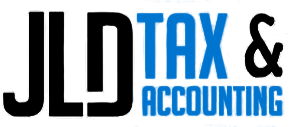What is the IRS Fresh Start Program?
When you owe the IRS a substantial amount of money, you may wonder how you can pay your debt without incurring costly interest and penalties. Rather than going deeply into debt, the IRS Fresh Start Program allows you to pay off what you owe in an affordable manner. You can decide if this program is right for your tax debt situation by learning what it is and how to apply for it today.
The IRS Fresh Start Program is designed to allow taxpayers to pay off substantial tax debts affordably over the course of six years. Each month, taxpayers make payments that are based on their current income and the value of their liquid assets. By the end of six years, their tax debts should be paid off in full.
This program simplifies the process of paying back hefty tax debts. It also helps people avoid many of the detriments of owing a tax debt to the IRS including:
Penalties
Interest
Tax liens
Seizure of assets
Wage garnishments
The IRS initiated its Fresh Start Program in 2008 and expanded it in 2012 to ease the financial burdens of taxpayers who owe up to $50,000 in taxes. It is available to both business owners and individual taxpayers.
People who owe a tax debt of $50,000 or less to the IRS are qualified to initiate the Fresh Start repayment process at any time. When they apply for this program, they can choose one of three repayment options that are available to them.
The program was designed to take into account the hardships faced by people who experience circumstances like unemployment, medical issues or personal hardships. Taxpayers who are unemployed for longer than 30 days may be eligible to have their IRS penalties waived. They also could have request a six month extension to file and pay their taxes without fear of costly IRS penalties.
Repayment Options Under the IRS Fresh Start Program
The IRS Fresh Start Program offers three repayment options to taxpayers. All three options allow people to pay off their tax debts legally and satisfactorily. They also allow people to avoid additional penalties and interest that could cause undue financial hardships.
The first option available to people is called an extended installment agreement. An extended installment agreement is designed for people who owe $50,000 or less to the IRS. It grants taxpayers up to six years to pay off what they owe without incurring additional penalties and interest. It also stops IRS collection activities like wage garnishments, tax liens, and seizure of assets.
This option is one of the most commonly utilized under the IRS Fresh Start program. The payments that taxpayers make each month will be based on how much money they currently make along with the value of the assets they have at their disposal. The payments are designed to be affordable so taxpayers can make them on time and without financial difficulties each month.
The second option is called an Offer in Compromise or OIC. An OIC is a rare but entirely possible choice for taxpayers to pay off what they owe to the IRS.
With an OIC, a taxpayer essential makes an offer to settle the tax debt for less than what he or she owes. Sometimes this offer is substantially lower than the actual value of the tax debt (sometimes pennies on the dollar).
DO YOU NEED TAX HELP?
SCHEDULE A FREE CONSULTATION WITH A LOCAL TAX EXPERT
If you want to make an OIC to the IRS to pay off your debt, it is important that you make one that accurately reflects your current financial situation. Because the IRS accepts OICs on an infrequent basis, you may fare better to have a tax professional prepare and submit your offer to the IRS on your behalf. A tax professional can file the appropriate IRS forms and accurately report your financial situation so the OIC will be given its due credence and potentially accepted faster.
The last option is called a tax lien withdrawal. This repayment choice is available for taxpayers who agree to pay off their entire tax debt through a direct debit repayment option.
Once they are set up on the direct debit repayment plan, taxpayers can request to have the tax lien withdrawn from their accounts. People who receive the withdrawal may be able to avoid having it reported to the three credit reporting agencies.
If you are unsure of what repayment option to request under the IRS Fresh Start Program, you may want to hire a tax professional to advise you. Your tax professional can also file the needed IRS forms and assist you in applying for and getting set up on the repayment option that best suits your current finances.
Applying for the IRS Fresh Start Program
To apply for the IRS Fresh Start Program, you first must file all of your back and current tax returns.
You cannot request any of the repayment options if you have outstanding tax returns that you have yet to file. You also must resolve to file all of your future returns on time while you are enrolled in the Fresh Start Program.
Once you file all of your tax returns, you can then go to IRS.gov to enroll in the program using the Online Payment Agreement tool. This tool allows you to select the repayment option in which you are interested. If you prefer not to enroll online, you can request to be part of the IRS Fresh Start Program by filling out and submitting IRS Form 9465, which can be found on IRS.gov.
Enrolling in the program can be a complex undertaking that you might not understand or be prepared to see through to the end. To ensure you are enrolled successfully in the repayment plan of your choice, you may want to hire a tax professional to assist you.
A tax professional can assist you in disclosing all of the requested information like your income and the proper value of your assets. A tax professional can also help you avoid disclosing information that can be used against you in a criminal investigation or audit. He or she can advise you on the best repayment option to pursue and guide you in applying for and being accepted for it.
Paying a significant tax debt can put severe hardship on your finances. You can avoid going into debt and settle your debt more affordably when you take part in the IRS Fresh Start Program. A qualified tax professional can assist you in choosing the best repayment option for your finances today.


